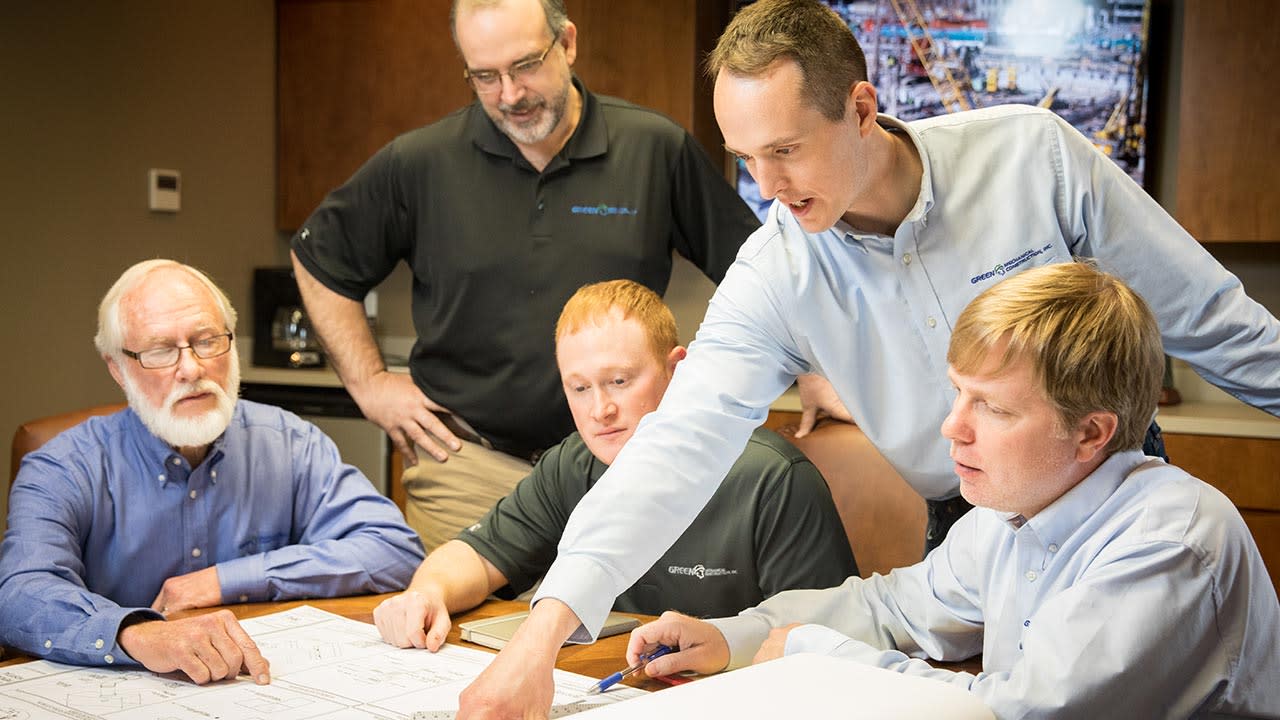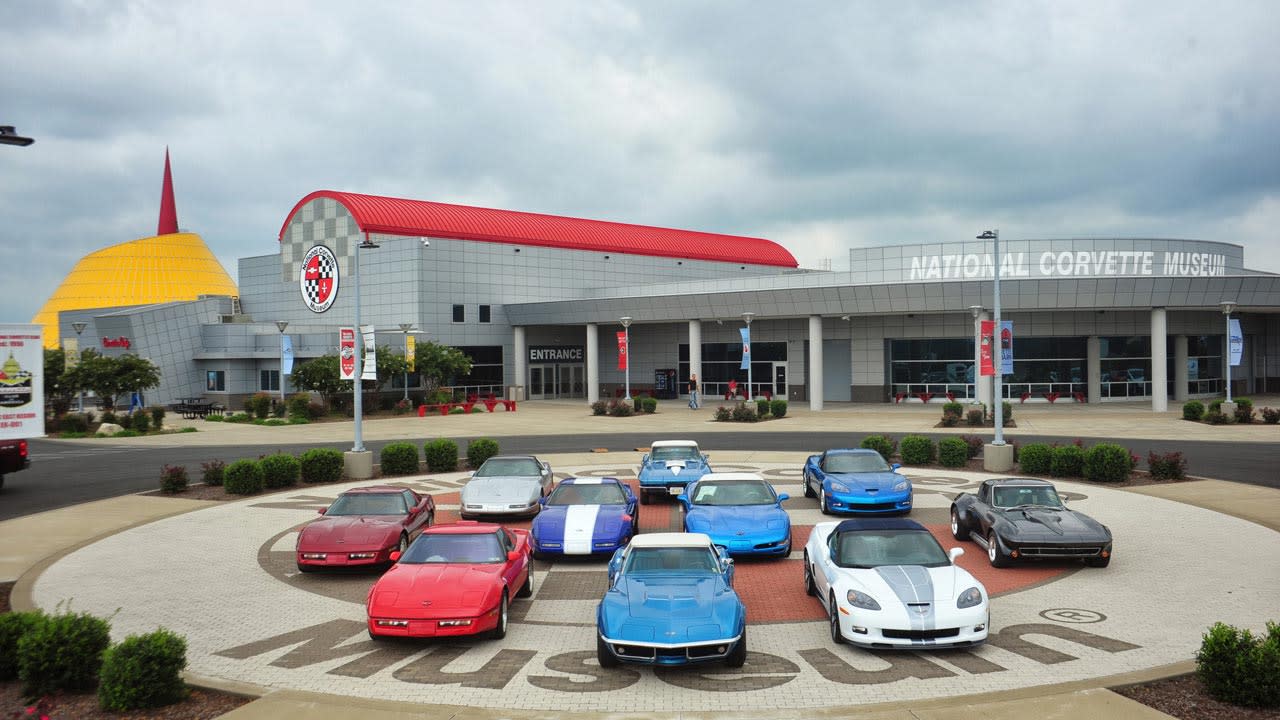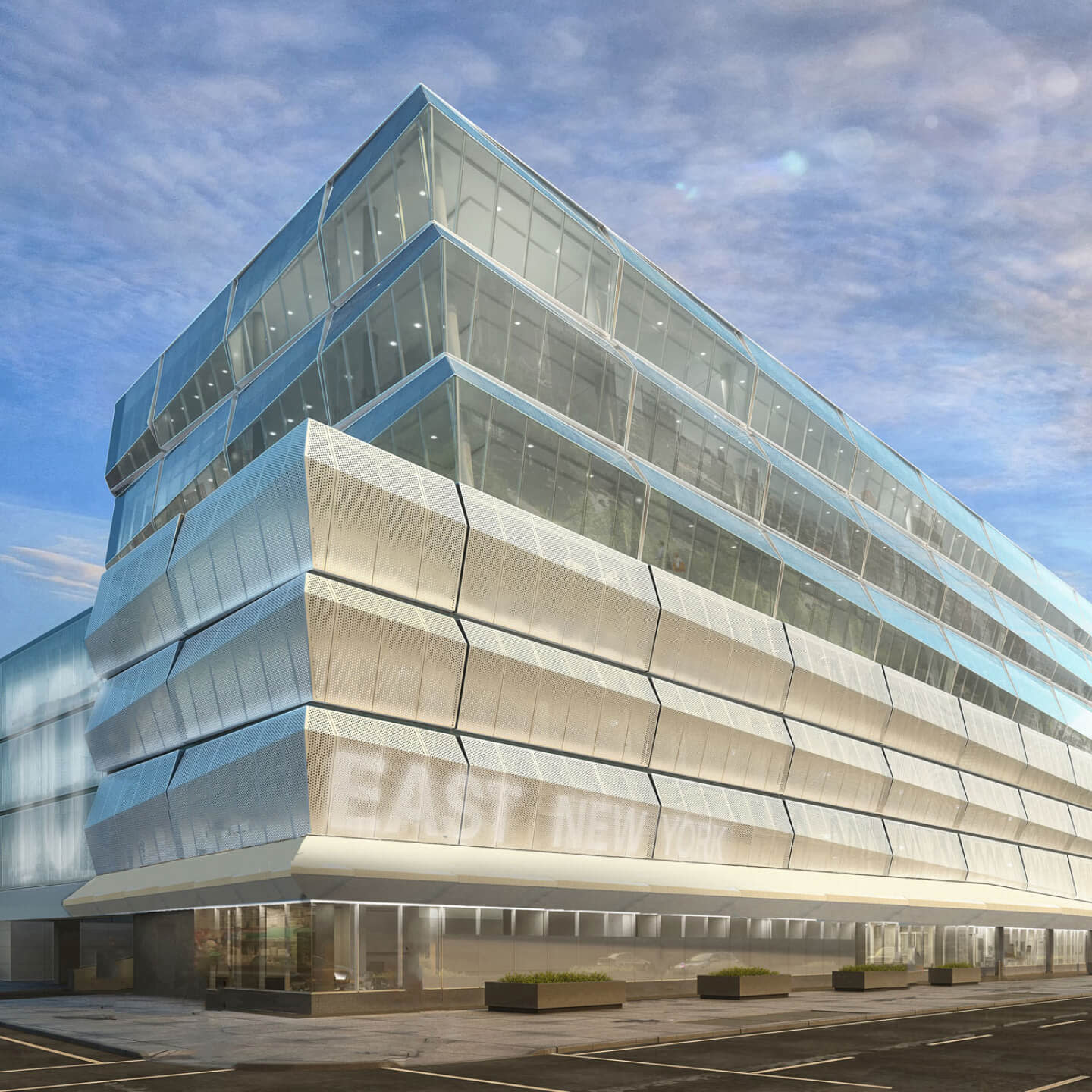The Challenge
After relying on manual processes for years, Green Mechanical realized project management tasks were becoming increasingly complex and time-consuming. Various systems created data silos which left them at risk for human error, a lack of standardization, and rework from outdated data.
The Solution
Procore offered a comprehensive toolset and vital third-party integrations that consolidated all project information into one centralized location. What's more, teams could easily access real-time information anytime, anywhere. With automated workflows and streamlined processes, Green Mechanical protected profit margins and boosted profitability.
“Procore paid for itself in the first three months—just through purchase orders alone.”
Wes Simpson
Chief Executive Officer

For years, Green Mechanical relied on manual processes like Excel, email, and pen and paper—processes that President & CEO Wes Simpson calls "archaic." Not only was it time-consuming, but it also created disparate systems that led to data silos, prevented standardization, and left room for human error. What's more, without real-time data, teams lacked full visibility into project health.
Saying Goodbye to Manual Processes
Since its inception in 1983, Green Mechanical has grown from 1 to 3 offices, taking on larger, more complex projects. However, success came with its own unique challenges. With employees spread across multiple cities and states, Green Mechanical built custom workflows for various systems to ensure collaborators had access to the information they needed. That meant employees had to keep track of multiple remote logins to complete simple tasks like printing job cost reports. Additionally, some employees used digital processes, while others used pen-and-paper. As a result, teams were often working off outdated information.
"The data was always behind, and sometimes it was bad data," Simpson recalls. "The thing is, every day the design changes on a fast-track design-build project, and it's important that our guys in the field have the latest and greatest drawings from minute to minute. Before, there were a lot of things we were having to go back and redo."
Simpson decided to find a way to turn this "bad data" on its head. He wanted to ensure all information was accurate and could provide powerful insights to help drive production. With the executive team's support, Green Mechanical decided to perform an extensive audit of current systems and revamp processes companywide.
"We were living in the past. It was time to make a change," says Simpson.

Finding the "Cadillac of a System"
Simpson and Jason Chenoweth, Chief Financial Officer, began researching construction management solutions, and they set up demos with various providers. Some boasted "best-of-breed" single-point solutions, but Simpson knew this would only lead to more disparate systems and data silos—the very issues he was trying to solve. Other solutions offered "all-in-one" software, but they lacked critical components like financial tools.
"It was really important for us to have financial information on the cloud and to easily share it. As an executive team, we're on the road a lot and in different office locations, and for us to be able to collaborate on project costs and contract data from anywhere was crucial," he says.
The team wanted to find a solution that not only consolidated all project information into one centralized location, but that also offered vital integrations—including one with their accounting system, Sage 300, which Chenoweth had successfully implemented in 2009. Plus, they needed a platform that offered freedom of choice, allowing them to choose the most impactful products for their team without being forced to implement ones that were not useful.
After running through the demos, Simpson recalls that Procore not only met all criteria, but it went above and beyond the other solutions, standing out as a "Cadillac of a system." It offered a robust toolset for project management, financials, field productivity, and health and safety, while also integrating with over 100 third-party applications.
"We began running the numbers and looking at what Procore could do to fix purchase orders, subcontracts, drawings, specs, and documentation. We did some really detailed calculations on the financial goals we wanted to meet. That's when it became apparent that we could make a significant return on investment."
Procore: Not Just a GC Solution
When Green Mechanical first began considering Procore, Simpson admits that he worried it was solely a "general contractor solution" which he says is a common misconception. However, he says that Procore works just as well—"if not better"—for subcontractors.
"Procore works for us just like it would for general contractors. We write purchase orders the same way they would write them. On the drawing side, it's important to track folders and documents, do document releases, and then pull those into the drawings and specs. Those things are all huge for subs, and with Procore, it's all in the cloud."
For Simpson, the ability to access data anytime, anywhere was key. Before using Procore, project managers had to physically sit at their desks to work with systems like Sage 300 since they were linked to the servers in the building. However, this left them exposed to the risk of server failures, ransomware, and lost project data.
With Procore, all information is documented and backed up on the platform which helped Green Mechanical eliminate these issues, increase visibility, and ensure accountability across all teams. Additionally, unlike with other platforms, Green Mechanical saw their feedback reflected in the product. In fact, Simpson says he and his team worked collaboratively with Procore to build new subcontractor-centric features on the platform.
"We feel like a part of the team with Procore because we're giving feedback, and we've seen that feedback implemented. I really feel like there's good collaboration."

Protecting Profit Margins
By eliminating manual processes, Procore helped Green Mechanical boost profitability in two ways: protecting profit margins and increasing those margins. In order to tackle the first, Simpson wanted to cut out costly mistakes that could impact their bottom line such as unnecessary overhead, costly rework and field issues, and poor change management. He knew that aside from streamlined processes, the key to this was access to accurate, real-time data.
"The data that we're getting now makes us so much more dangerous, especially financially. With a rolling forecast, we can make better decisions about billing and cash flow, so we can go out and get more work at the margins we need. Also, as soon as you push a purchase order through Procore to the ERP, it goes directly to your job costs, whereas before it could take up to a week. We know exactly where our project costs and our schedules are at day-by-day. We're able to make better decisions about the jobs that we're going after," Simpson says.
Although many of Green Mechanical's processes underwent dramatic changes, the most notable was that of purchase orders. After partnering with Procore, a single purchase order went from a laborious 32-minute process to a quick 7-minutes, and the cost was reduced from $18.23 to a mere $4.73 per order. With over 2,000 purchase orders each year, this equated to over $30,000 in savings per year.
"Procore paid for itself in the first 3 months—just through purchase orders alone. The executive team realized how much money it was saving us. Procore gives us great information and really gets everybody excited about what it can do for us."
With other Procore tools factored in, Simpson found that Green Mechanical saved over $115,000 in just the first year. Also, automated workflows helped Procore eliminate the need for at least one employee in each office location, which reduced staffing costs. Simpson equates this to over 4,000 hours saved and says that even that estimation is "conservative." In addition to this, he notes that Procore has saved each project manager between 4-10 hours a week. Without tedious administrative work, employees were able to focus on more meaningful tasks. This helped mitigate the risk of mistakes and rework, saving both time and money.
"It's just so much easier on our project management teams. They've got a lot more time to actually manage projects instead of just scrambling or making knee-jerk reactions and rubber stamping things when it gets busy because that's when things get overlooked," remarks Simpson.
Maximizing Profitability
While Procore helped Green Mechanical protect margins, Simpson says that it also enhanced the team's top-line revenue. In fact, Procore was part of $10 million in growth over the first year. With new standardized processes, more efficient workflows, and seamless field-to-office communication, productivity skyrocketed. As a result, Green Mechanical was able to generate more business with the same resources.
"Last year we did more work than we've ever done, and it was less stressful than a couple years ago when we did the most work we've ever done—and we had the same number of people. Hitting our targeted margins is a lot more manageable. Everybody knows that they've got the information they need. Now, we can do what we've done before and do it in a lot less hours."
Additionally, Simpson says that Procore helped Green Mechanical boost profitability by bolstering their relationship with general contractors.
"With Procore, our information was coming a lot quicker and it was accurate. That's a big reason why we got brought to the table in the negotiation phase so much quicker. Procore makes it so much easier on them because we're sending them submittal logs and things that aren't handscribbled or somebody screwed up a formula in Excel," he pauses to let it sink in. "Today, if you're still old-school and working off of pencil-and-paper, it can put off general contractors when the big jobs come down the road. They want to know they've got a subcontractor that can handle $10 million worth of work and can track everything and not make a mess for them. It makes it less stressful on both us and them. It makes us a better company, and it shows our commitment to really staying ahead of all of our competitors. It also makes us more profitable."
Simpson says that Procore's value has been recognized both within Green Mechanical and by industry partners. "Our folks absolutely love Procore. They see the value. They know we all drink from the same straw, and so if it helps make the project better, then we all win," he pauses briefly. "I also showed a few demos of the product to some of our general contractors. Now they've all picked up Procore and are using it."
Yet for Simpson, the impact reached much further. He says that boosting productivity, ensuring the success of employees, and strengthening industry relationships not only benefits Green Mechanical and its projects, but it also helps positively impact the industry as a whole.








